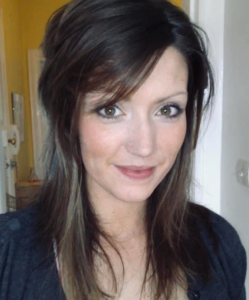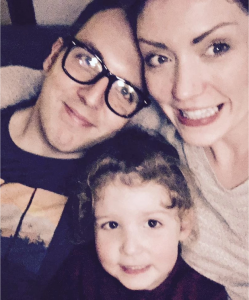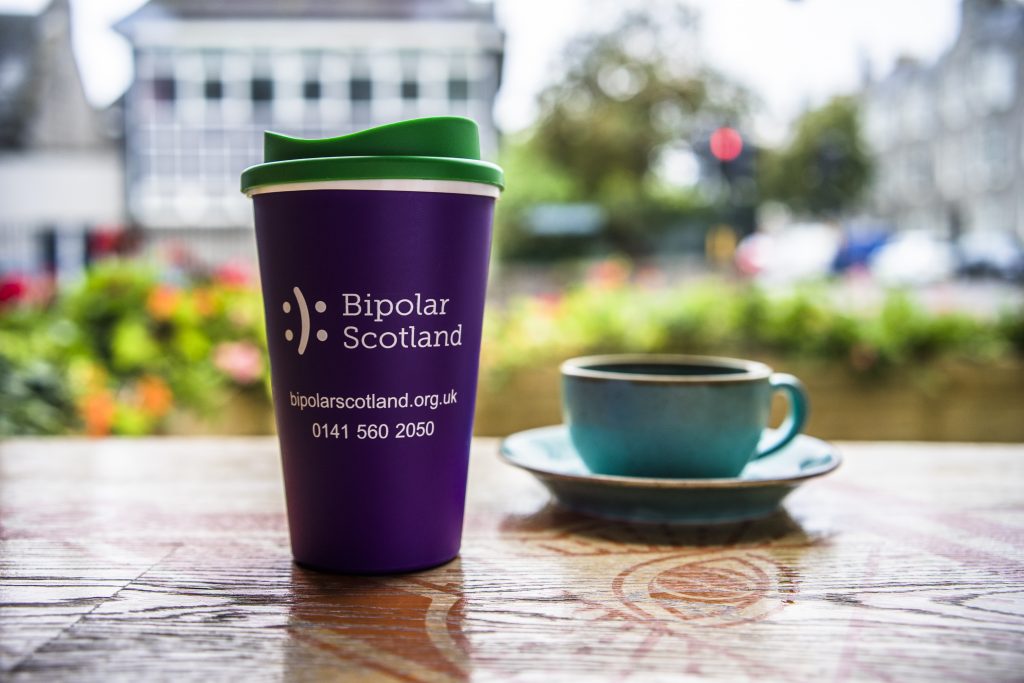Kerry, 39, was a high-achieving young person at school with talents in music and languages. However, after leaving the home at 17 to study Law at Strathclyde University – she began to experience her first depressive episode.
Kerry said: “I had just turned 17, and I was living by myself in Glasgow in halls. I didn’t do well at university – I wasn’t prepared for it at all.
“I remember wanting to not be there, in life. I felt like I was taking up too much space, I felt like I was a burden on everybody. It wasn’t about me feeling so bad that made me suicidal, it was me feeling so bad about the effect I was having on everyone around me.
“I’d gone home one weekend, and I was making a cup of tea and I dropped the bowl of sugar and it smashed. I went down to pick it up and sat down and I just couldn’t get back up again, I couldn’t face standing up. My mum sent me to the doctor straight away”.
At this stage, Kerry was diagnosed with depression – a common misdiagnosis for bipolar disorder.
Kerry left university and moved to Germany at age 18, in what she now recognises as a manic decision as she had ‘no money, knew nobody and didn’t speak German’.
Kerry said, “I would say I’ve had six or seven periods of full mania in my life. I remember the faces around me and the disbelief, but at the time you just feel utterly immortal, like nothing can touch you, that you’re the funniest person in the room and you can read everyone really well. I used to think I was psychic in my early twenties because I could read people so well when I was manic.”
“I would spend money I didn’t have, and I would fill up loads of notebooks writing absolute rubbish that I thought would be a world-changing novel”.

Kerry at age 23
Kerry returned to Scotland to try studying once more but left for mental health reasons. She then moved to Austria, where she taught ESOL, and at age 21 she heard her first suggestion of bipolar disorder after being hospitalised in Austria for stomach issues.
“In depressive episodes, I wasn’t eating so I wouldn’t eat for days at a time then I would smoke 20 cigarettes and drink red bull to get me through the day. It would just damage my body so much. I was actually hospitalised on quite a few different occasions for stomach issues – they’ve all come from mental health issues.
“I was in hospital in Austria with gastritis. I got sent to a psychiatrist in the hospital because in Austria if you have a stomach complaint, they send you to a mental health professional. She was the first person who mentioned the bipolar word to me when I was 21, that was the first inkling I had.”
Upon returning to Scotland, Kerry studied at the Open University whilst working, achieving three post-graduate degrees. In 2010, she married husband Alex, who she met when she was 17 at university, and they had daughter Maggie in 2013.

Kerry at age 23
Kerry returned to Scotland to try studying once more but left for mental health reasons. She then moved to Austria, where she taught ESOL, and at age 21 she heard her first suggestion of bipolar disorder after being hospitalised in Austria for stomach issues.
“In depressive episodes, I wasn’t eating so I wouldn’t eat for days at a time then I would smoke 20 cigarettes and drink red bull to get me through the day. It would just damage my body so much. I was actually hospitalised on quite a few different occasions for stomach issues – they’ve all come from mental health issues.
“I was in hospital in Austria with gastritis. I got sent to a psychiatrist in the hospital because in Austria if you have a stomach complaint, they send you to a mental health professional. She was the first person who mentioned the bipolar word to me when I was 21, that was the first inkling I had.”
Upon returning to Scotland, Kerry studied at the Open University whilst working, achieving three post-graduate degrees. In 2010, she married husband Alex, who she met when she was 17 at university, and they had daughter Maggie in 2013.

Kerry and her family
It wasn’t until age 35, after continuous episodes throughout her life and cyclical periods of stomach issues – Kerry was referred to a mental health team, after support from her husband.
Kerry said, “Just before I got my diagnosis of bipolar, I had a bad depressive episode and I was suicidal. My husband caught me sorting out my life insurance and he sussed out what was going on. I went back to the GP, who had also noticed the cycles of stomach issues, who then referred me to the psychiatrist. That was when I got my proper diagnosis of bipolar.”
It wasn’t until Kerry found out about Bipolar Scotland’s support groups, that she finally accepted her diagnosis.
Kerry said, “I turned up to the Glasgow West support group and I was welcomed with open arms. It was just this sense of overwhelming relief to be in a room with people who have got this. I didn’t feel like I couldn’t be myself, regardless of how I was feeling. I didn’t have to put a face on.
“Nowadays, I have seen me clinging during lockdown, by my fingernails to life with the depressive episodes, waiting for the next meeting to come around because I know that I’ll be in a room with those people that get it, and I can tell them exactly how bad it is without feeling like I’m going to be judged for it.”
Kerry now manages her condition with medication, self-management techniques and attending support groups. She has continued her passion for teaching, currently working as a tutor for employability and well-being.
“I wouldn’t be doing the work I do now, if I hadn’t had the life that I had. The diagnosis answered a lot of questions about my life. I feel really positive about my diagnosis now, it helps me, it doesn’t hinder me – it has helped me understand myself.”
“For me, managing bipolar is not just about survival, it’s about thriving.”
Stories
"*" indicates required fields

On The Level, our bi-monthly e-magazine for people in Scotland living with bipolar, is packed full of articles, case studies, news and opportunities to take part in research. Why not sign up to receive it and join the caring, informed Bipolar Scotland community?